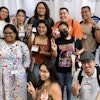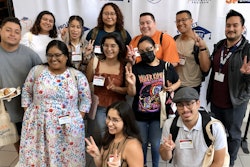Stacyann Morgan got into biomedical engineering through a simple Google search. She got through an undergraduate program in the emerging field thanks to a federally-funded program that provided multi-layered support to Black and Latino students at City College of New York.
Starting in 2001, the National Institutes of Health funded the Minority Scholars Program at the fabled urban college in a bold attempt to graduate Black and Latino graduates who would pursue Ph.D.s, particularly in biomedical engineering, which combines mechanical engineering and medicine to create innovations in diagnosing and treating diseases.
Back-to-back NIH grants paid the tuition of participating students and provided stipends, summer research slots and, in the last five years, mentors and tutors who were Ph.D. candidates in biomedical engineering. The stipends of $9,000 to $10,000 a year allowed the students to attend City College full-time without having to work. To stay in the program, students had to maintain a 3.0 grade point average.
Annual student retention in the rigorous, interdisciplinary field rose as high as 100 percent in recent years, according to
Dr. Sheldon Weinbaum, the program’s founder and CUNY distinguished research professor emeritus of biomedical and mechanical engineering.
The Minority Scholars Program is on track to hit its ultimate goal of producing doctoral degrees. Of 36 Black and Latino graduates, 19 entered doctoral programs, and four have persisted, Weinbaum says. If all four receive doctorates starting next year, the rate of one in nine undergraduates reaching that level would match a historical high in all fields at City College, one of the largest producers of Ph.D. students in the country.
Weinbaum, a longtime diversity advocate, says the 10-year experiment was designed to show that, “if we level the playing field and give minority students what I felt was a much fairer opportunity to perform at a high level, we could basically produce Ph.D. students” who may become faculty.














